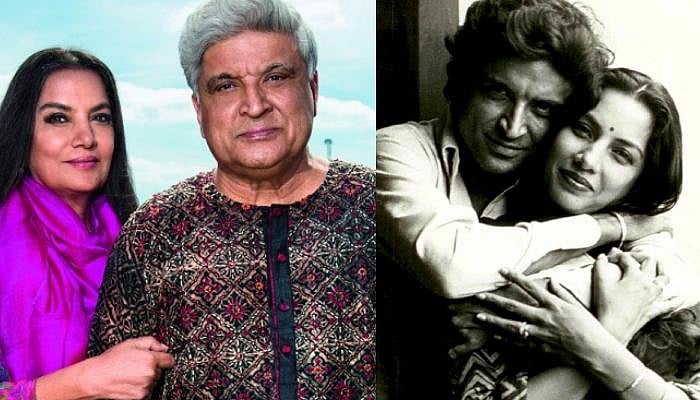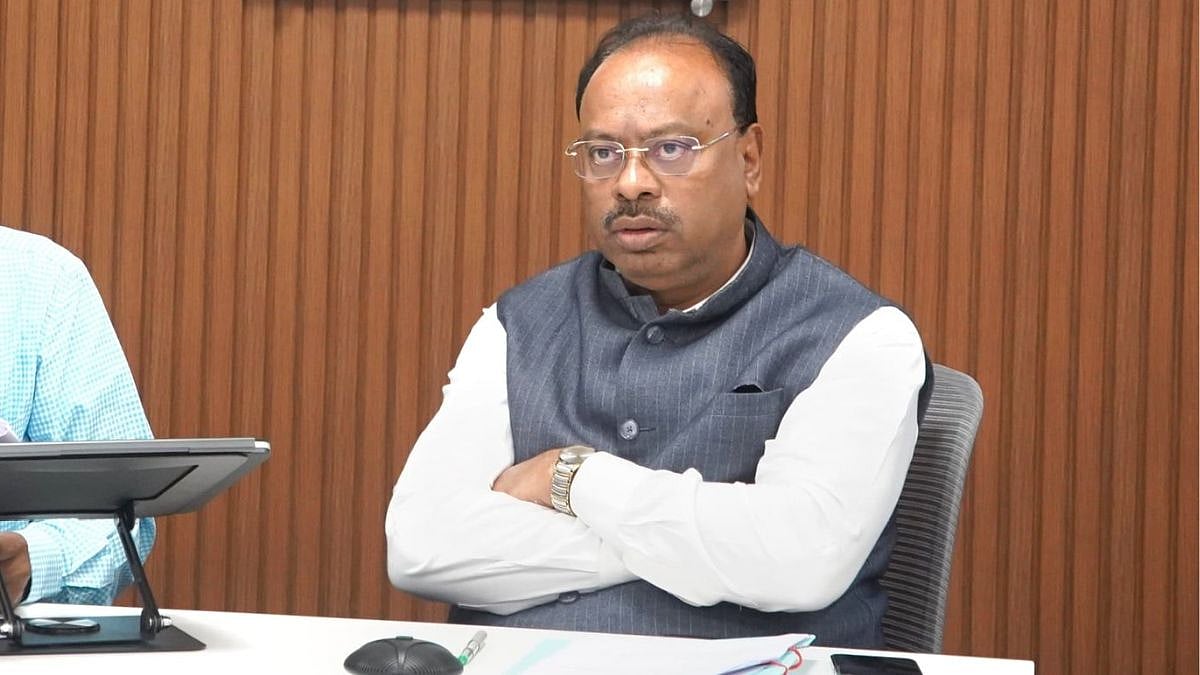Is it just a coincidence that Shabana Azmi married a man who not only was a poet like her father, but also had similar political sensibilities and a fervour for tenets and values?
No.
Most daughters hero-worship their fathers. Shabana was no different. She has often mentioned that initially she found it difficult to relate to her father and his profession that was so different from the other fathers — those of her classmates. Kaifi Azmi was a poet and a comrade, a communist who lived in a room allotted to him by the party at the Red Flag House. As she grew older, Shabana could relate to the struggles and ideologies of her father. She soon was proud of her father’s achievements in the world of poetry and as a lyricist of the Hindi film industry. Shabana found traces of her father’s moral values and belief system in Javed, who came to their house to meet Kaifi Azmi drawn by his poetic genius. She overheard their discussions and was slowly drawn towards Javed Akhtar, who was rediscovering himself as a poet.
For Kaifi Saab, shayari was as natural as breathing. But he preferred writing for himself to express his thoughts. Writing to earn and as per the requirement of the situation — something that he had to do to keep fires at home burning — did not come easily at the start. But it was music directors like SD Burman and friends like Guru Dutt, who coaxed and inspired him to write for films.
Coming from a family of landlords, Kaifi chose the life of hardships that being an active member of the Communist Party offered him. But not once did he regret his decision. And he was aptly supported by his wife Shaukat, who had also left her comfort zone to be with the man she was madly in love with.
Once when Kaifi Saab was asked who among the older shayars influenced him the most, his prompt reply was Ghalib! His reasoning was simple: “The most important thing that I learnt from Ghalib is that whatever you write/say should be an experience for the reader/listener! Only what you feel and endure can be felt or endured by the other person… and once they sense it, you have communicated your self and your expression…” This explained why ghazal was not the natural choice for Kaifi Saab.
Javed Akhtar had a different and difficult start. He had, comparatively, an arduous childhood. He lost his mother quite early after his father left her with two children to pursue his dreams in the then Bombay. He loved watching Hindi films and writing stories. It is difficult to say if it was his urge to make a name for himself and be rich as he did that or the deep-rooted, yet hidden, yearning to find his father that led him to Mumbai. His journey to fame was not easy and had pit stops for hunger and homelessness. He soon found the right partner to write with and the “break” desired… and then, there was no looking back. He ruled the Hindi cinema with his scripts and dialogues along with Salim Khan. Salim-Javed was a name to reckon with.
Poetry at that time was a way for Javed Saab to express his emotions. He wrote when he was hungry, and when he was lonely. His love and anger found expression via poetry. He, too, believed that poetry was a form of self-expression and did not resort to writing songs for situations till his good friend Yash Chopra practically forced him to write the songs for Silsila, the 1981 film. It all started with Chopra vehemently deciding to use one of the poems of Javed Akhtar — Main aur meri tanhai — in the film. Chopra was aware that his best scriptwriter was also a poet. He knew that Javed was struggling to find a foothold again after the partnership with Salim Khan had ended. His cogency pursued Javed Akhtar to take up writing songs seriously and professionally.
It is amazing and not so amazing to note that these two men sometimes had a similar take on life. Both had strong political opinions, wrote about political situations in the country and romanced the women in their lives.
While Kaifi wrote for his wife:
ज़िंदगी नाम है कुछ लम्हों का
और उन में भी वही इक लम्हा
जिस में दो बोलती आँखें
चाय की प्याली से जब उट्ठीं
तो दिल में डूबीं
(Life is but a collection of moments, especially the one when your talkative eyes leave the hot cup of tea, and drown in the depth of my heart)
Javed Akhtar wrote for his wife:
सारी दुनिया पीछे छूट जाती है
वहाँ पल भर को…
कि मेरी राह में जब ऐसा कोई मोड़ आया है
तो हर उस मोड़ पर मैं ने
तुम्हें हम-राह पाया है
(The world is left behind for the moment… whenever there’s a moment that I need you most, on that curve of life, I have always found you to be by side)
Kaifi Saab, the communist, fought for independence. Javed Saab still strongly believes in a united Bharat.
Kaifi Saab wrote:
कुछ ख़बर है, रो रही है मादर-ए-हिंदोस्तान
डगमगाती है जमीं, थर्रा रहा है आसमाँ।
(Are you aware that your (Bharat) Mata Hinustan is crying? The earth is shaking and so is the sky)
Javed Saab wrote:
जो जख्म तन पे है भारत के उस को भरना है
जो दाग माथे पे भारत के है मिटाना है।
Despite these similarities, there is a distinct contrast. While Javed Saab took to writing lyrics like a fish to water and has written all kinds of songs, Kaifi Saab didn’t quite enjoy the process and didn’t venture beyond his comfort zone.
Having said that, I would like to conclude with one of Kaifi Saab’s famous songs that resonates with all in love; across generations…
तुम जो मिल गए हो, तो ये लगता है, के जहाँ मिल गया...
(Feels like I have conquered the world, now that I have you with me…)
Shruti Pandit is Consulting Editor, Features, The Free Press Journal









